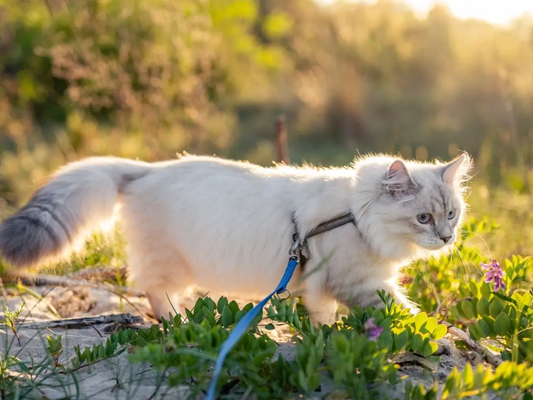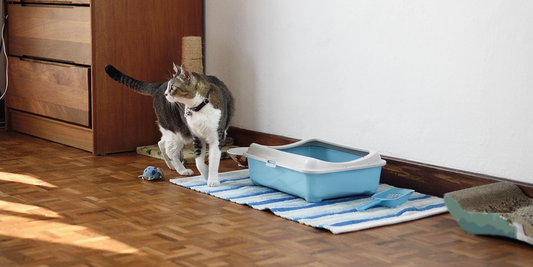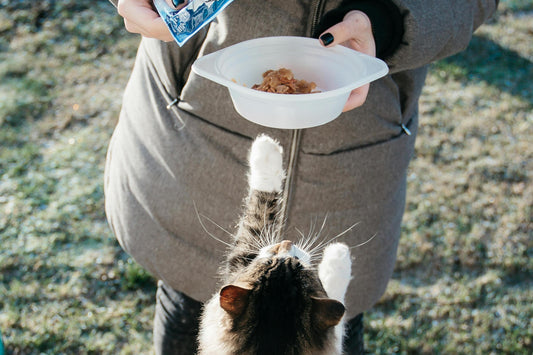As a responsible pet owner, taking care of your furry friend's health is of utmost importance. Dental calculus, also known as tartar, can significantly impact your pet's overall well-being. Just like in humans, dental calculus in pets can lead to various oral health issues, affecting their quality of life. In this article, we'll delve into the intricate process of how dental calculus forms in furry pets and provide insights on preventing its formation.
How Does Dental Calculus Form in Furry Pets?
Understanding the process of dental calculus formation is essential for proactive pet care. Here's a breakdown of how it happens:
-
Plaque Formation: Plaque is a sticky film of bacteria that forms on the teeth when your pet eats. Over time, this plaque accumulates and hardens, creating a breeding ground for harmful bacteria.
-
Mineralization: As plaque sits on the teeth, minerals from saliva start to deposit on it. These minerals, primarily calcium, combine with the plaque to form a hard substance known as dental calculus or tartar.
-
Buildup: The dental calculus builds up on the teeth, both above and below the gumline. This buildup not only causes bad breath but also provides a conducive environment for bacterial growth, leading to various dental issues.
-
Complications: If left untreated, dental calculus can lead to serious oral health complications in pets, including gum disease, tooth decay, and even tooth loss. Additionally, the bacteria in the mouth can enter the bloodstream, potentially affecting other organs.
Factors Contributing to Dental Calculus Formation
Several factors contribute to the formation of dental calculus in furry pets:
-
Diet: A diet high in carbohydrates and soft foods can promote plaque formation and, consequently, dental calculus. Dry kibble or dental-specific diets can help reduce plaque buildup.
-
Breed: Some breeds are more prone to dental issues due to genetics. Breeds with crowded teeth or short muzzles are particularly susceptible.
-
Age: Dental calculus tends to accumulate as pets age. Regular oral care is essential for preventing its formation.
-
Lack of Dental Care: Insufficient dental care, including a lack of brushing, professional cleanings, and chew toys, can contribute to dental calculus.
Preventive Measures to Maintain Oral Health
Prevention is the key to maintaining your pet's oral health and preventing dental calculus formation. Here are some effective measures to consider:
-
Regular Brushing: Just like humans, pets benefit from regular teeth brushing. Use a pet-friendly toothbrush and toothpaste to clean their teeth gently. Start with short sessions and gradually increase the duration.
-
Dental Chews and Toys: Providing dental chews and toys can help reduce plaque buildup. Chewing on these items can help mechanically remove plaque and massage the gums.
-
Professional Cleanings: Regular visits to the veterinarian for professional dental cleanings are essential. These cleanings can remove stubborn dental calculus and address any emerging oral health issues.
-
Balanced Diet: Opt for high-quality pet food that promotes dental health. Dental-specific diets or those formulated to reduce tartar buildup can be beneficial.
FAQs
How often should I brush my pet's teeth?
It's recommended to brush your pet's teeth at least 2-3 times a week. Consistency is key to preventing dental issues.
Can dental calculus be reversed?
Once dental calculus has formed, it cannot be removed by brushing alone. Professional cleanings are required to safely remove it.
Are there any home remedies for dental care?
While regular brushing is crucial, certain dental treats and toys can aid in oral care. However, they should not replace professional cleanings.
My pet refuses to let me brush its teeth. What should I do?
Start slow and gradually introduce toothbrushing as a positive experience. Use pet-friendly toothpaste and offer treats as rewards to create a positive association.
Are there signs of dental problems I should watch for?
Yes, keep an eye out for signs such as bad breath, excessive drooling, difficulty chewing, and inflamed gums. If you notice any of these, consult a veterinarian.
How can I find a reliable veterinarian for my pet's dental care?
Ask for recommendations from fellow pet owners, read online reviews, and schedule a visit to assess the veterinarian's approach to dental care.
Conclusion
Understanding how dental calculus forms in furry pets is essential for maintaining their overall health and well-being. By taking proactive measures such as regular brushing, providing dental chews, and scheduling professional cleanings, you can prevent the formation of dental calculus and ensure your furry friend enjoys a happy and healthy life.








